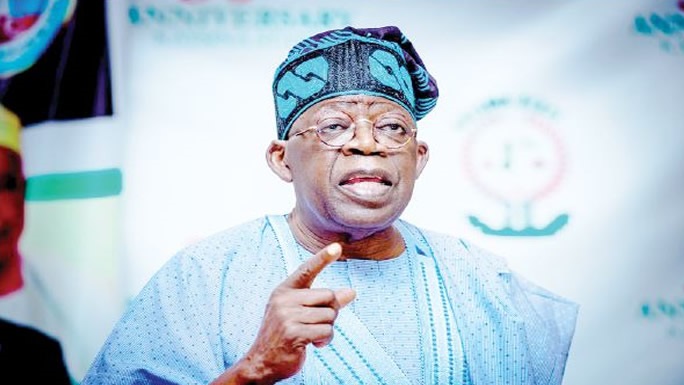President Bola Tinubu has been requested to look into the $1.5 billion World Bank loan that the 36 states of the federation and the Federal Capital Territory received from the Socio-Economic Rights and Accountability Project.
The group also requested that Tinubu look into the ‘possible misuse of the $3.121 billion in Chinese loans that the Federal Government obtained.’
Read Also: Tinubu Gets $600 Million Maersk Investment For Nigerian Ports In Saudi
SERAP requested that the President ‘direct the Attorney-General of the Federation and Minister of Justice, Lateef Fagbemi, and appropriate anti-corruption agencies to promptly and thoroughly investigate’ the loan’s disbursement in order to ‘reduce poverty and social protection across the states.’
This was written in an open letter dated August 10, 2024, and signed by Kolawole Oluwadare, the deputy director of the organization.
According to SERAP, people or organizations suspected of ‘corruption and mismanagement should face prosecution.’ If there is enough admissible proof, as appropriate, and any proceeds of corruption should be properly recouped.
The $1.5 billion World Bank loan to Nigeria’s 36 states plus Abuja should be tracked and monitored collectively, according to SERAP’s letter to Tinubu,
which included advice to ‘instruct the Economic and Financial Crimes Commission and Independent Corrupt Practices and Other Related Offences Commission.’
‘Trust in democratic institutions would be strengthened with the ultimate goal of strengthening the rule of law if accountability for the spending of Chinese and World Bank loans was achieved.’
There would be ‘impunity for corruption in the management of World Bank loans and Chinese loans’ as long as ‘high-ranking public officials go largely unpunished for their alleged crimes,’ the group claimed.
Furthermore, SERAP stated, Justice will be best served and the truth will come to light by investigating these claims and presenting the facts in court.
We observe that although a governor could not be subject to arrest or prosecution, he is not shielded from inquiry.
In addition, the ‘findings of such investigation can also be the basis for initiating impeachment proceedings against the governor’ state that ‘any criminal allegation against a sitting governor can and should be investigated pending the time the governor leaves office and loses immunity.”
According to the group, Tinubu’s administration is legally obligated to ‘ensure accountability for the spending of the loans obtained from China and the World Bank.’
Concerned about the ongoing lack of accountability and transparency in management is SERAP. the federal government, the states, and the World Bank were able to secure financing from China.
In the event that the ‘recommended measures are not taken within seven days of the receipt and/or publication of this letter,’ the group threatened to ‘consider appropriate legal actions to compel your government to comply with our request in the interest of the public.’
One paragraph of the letter stated, ‘It is in the public interest to prevent corruption in the use of World Bank and other loans.’ Making sure that those accused of corruption and poor loan management receive justice and responsibility is a valid public interest.
The 36 states of Nigeria as well as Abuja were given a $1.5 billion loan by the World Bank on December 15, 2020, for social protection, according to our knowledge.
plus enhanced COVID-19 response at the state level. Reduced poverty and a robust post-COVID-19 recovery are the two goals of the loan for the states and Abuja.
The loan is specifically intended to improve primary healthcare, expand the reach and efficacy of social assistance programs, strengthen women’s empowerment,
lower maternity and infant mortality rates throughout the states, and expand access to basic education, clean water, and hygienic facilities.
SERAP stated that as of March 31, 2020, Nigeria had borrowed USD$3.121 billion from China overall, according to data from the Debt Management Office.
Eleven projects totaling USD$3.121 billion would benefit from the loans, which include the Abuja Light Rail Project and the Nigerian Railway Modernization Project (Idu-Kaduna segment).
The DMO claimed in SERAP’s letter that Nigeria’s total stock of public debt was consisting of both domestic and external debts,
rose by N24.33 trillion in just three months, from N97.34 trillion ($108.23 billion) in December 2023 to N121.67 trillion ($91.46 billion) as of March 31, 2024.
The statement further states that the debt is made up of loans that the federal government, the 36 state governments, and the Federal Capital Territory have obtained.



